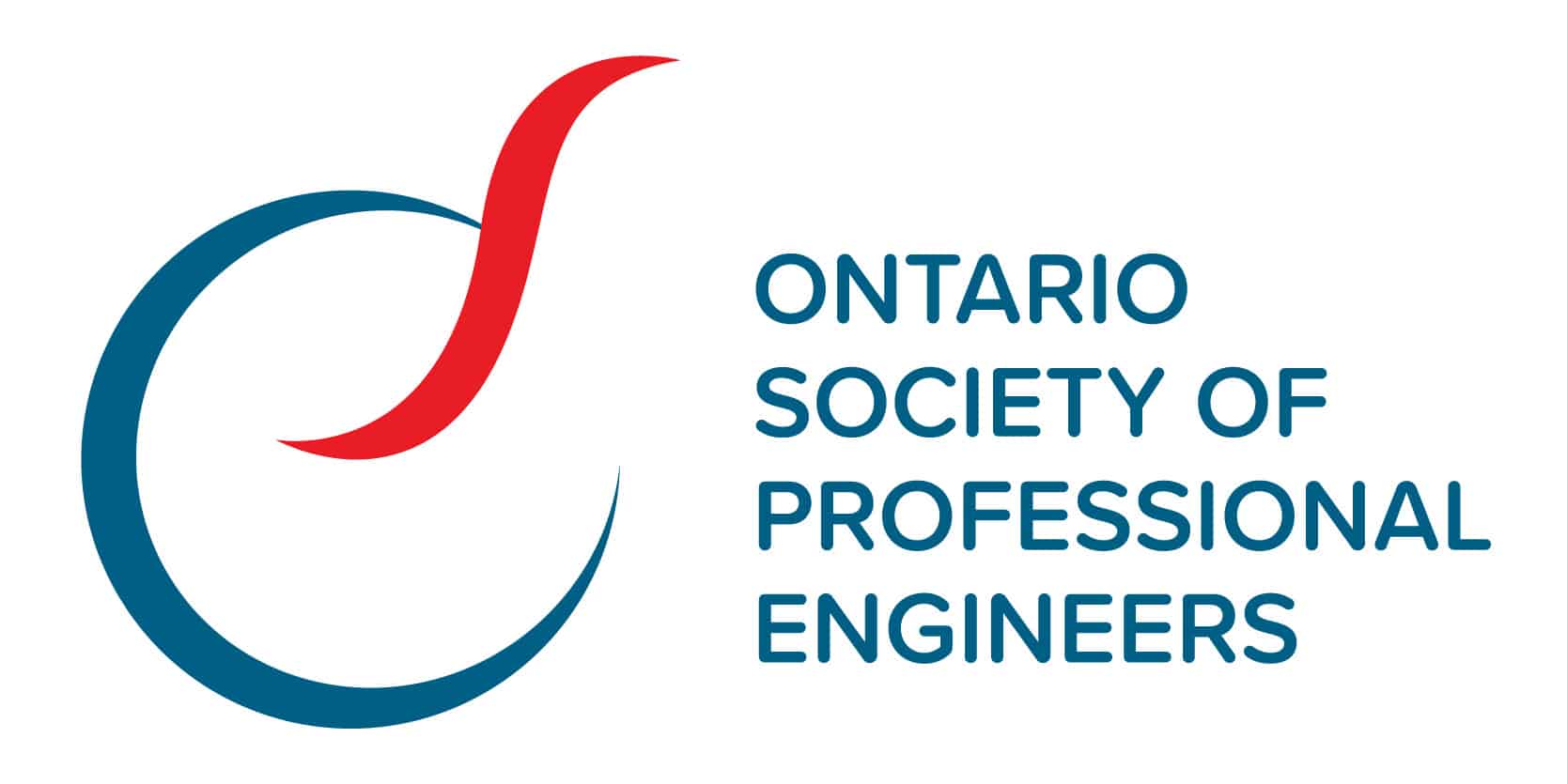
Leading up to National Engineering Month 2021, we will be sitting down with educators, regulators and associations within the engineering industry for a question and answer style interview series.
What follows is a transcript of an interview I had with Bruce Matthews, Executive Director at the Association of Consulting Engineering Companies -Ontario (ACEC-Ontario).
Q: How did you first hear about National Engineering Month (NEM)?
A: I’m a professional engineer myself and have been one for a while. I’ve been involved in engineering for 30 plus years now, so I go back to a time when it was actually National Engineering Week. That said, I think it’s great that it’s expanded to National Engineering Month as with the scope of work that professional engineers do, it requires that extra time and attention, which is a good thing.
Q: The theme for NEM 2021 is lifelong learning. What does lifelong learning mean to you & why is it important?
A: There is one particular anecdote that I think it really captures the idea quite well.
Two company executives are talking to each other about training and one says to the other, ‘what if we spend all this money on training our people and then they leave?’ And the other executive replies, ‘Well, what if we don’t and they stay?‘
So for that reason, lifelong learning is absolutely critical and it’s the kind of perspective that you need. Being forward thinking and realizing that it’s not just an investment in those people’s futures, but investment in the company’s future as well.
Q: What is consulting engineering?
A: The Association of Consulting Engineering Companies – Ontario (ACEC-Ontario) is an industry association and our members are consulting engineering companies across Ontario.
People often talk about consulting engineering as if it’s almost a separate discipline, but it’s not. It really just describes a relationship between the engineer and the client. Consulting engineers operate at arm’s length to their client, and they provide independent and objective expertise to solve the client’s problems, they can serve as an agent or an advocate for the client in dealing with other people on a project.
Consulting engineers can ultimately come from any engineering discipline. There are consulting electrical engineers and consulting structural engineers, and in fact, many consulting engineering firms are multidisciplinary. So ultimately clients turn to consulting engineering firms when they just don’t have that in-house engineering expertise to meet their needs and need those independent outside experts.
Q: What do consulting engineering firms do?
A: Consulting engineers offer professional engineering services and expertise in areas that aren’t just purely related to engineering and science, but also economic sectors such as energy resource development, environmental protection, manufacturing, etc. Certainly the public sector clients such as municipalities and provincial ministries and agencies and their federal counterparts are very significant consumers of consulting engineering services for things like water supply and wastewater treatment, roads and bridges, and other transportation infrastructure transit systems, energy telecommunications – the full gamut of the elements of infrastructure that our modern society relies upon. The firms that specialize in consulting engineering are responsible for designing and building much of the public infrastructure in Ontario and across Canada.
Q: Why is public awareness about the work your member firms do important?
A: It’s interesting because much of the work that the consulting engineering firms do is invisible. It exists, you know, but if it’s a study, nobody sees the study except the client. It’s a book. It’s a piece of paper or whatever, or if it’s a supporting kind of service, really the ultimate work product is somehow buried behind a wall. It’s buried underground, if it’s water wastewater, you don’t see the pipes that come into your house. You don’t see the water treatment in the wastewater treatment stuff that goes on – it’s all invisible. Much of the work is taken for granted – and that’s ok, but occasionally it’s good to pay some attention and appreciate the skills that go into these things as you drive along the road or highway.
I think the other factor is frankly the high quality of engineering work in Ontario and across Canada. Canada is the second largest exporter of engineering services in the world. Engineers in Canada operate in a more regulated environment than most other jurisdictions and therefore we work to comparatively high standards. Because of this, that’s what allows the public to take that work for granted. For example, you turn on your tap and you don’t have to think twice that there’s safe drinkable water coming out of there. You turn on your light switch. You don’t have to worry about whether the power is going to come on or if a fire is going to start inside the wall. There’s just none of that kind of consideration because of the standards to which the engineers themselves established – they make it look easy.
Q: Understand you had a recent name change. Can you tell me more about that?
A: We’ve been around as an association for 45 years now and up until just a few months ago we were known as Consulting Engineers of Ontario.
Recently through some strategic planning efforts, our board was looking at issues of identity and growth and what we want the association to do. We found the identity and branding that we had for those 45 years – while it served us well, the nature of the marketplace evolved and we decided that a refreshed identity would be something useful for the organization. The new name helps harmonize and reinforce the idea that we are part of the greater whole of Consulting Engineers in Canada which helps to convey the strength in how we represent the interests of our member firms.
Q: What are the benefits of working with consulting engineering firms?
A: The strength comes from the ability to obtain an independent, objective, expertise and advice. If you want someone to bring a perspective and bring some insights into a project idea or certain plans rather than hiring in or dealing with organizations that you don’t have arm’s length relationships where there may be secondary interests at play that may influence the advice or opinions you get. By going to consulting engineering for you are very much guaranteed objectivity. When using an engineering firm there’s no bias. You may not get the answer you actually hope to hear, but that’s the nature of the beast as professional engineers. Of course, they all put the safeguarding of the public welfare as paramount. Ensuring that you’re getting bias free advice and opinions that are of the proper quality with respect to the expertise, is absolutely critical.
Q: What is the less obvious work of your member firms?
A: That’s a really interesting question actually, and I’m going to talk about a particular niche area of consulting engineers and that’s forensics. Almost a third of our membership offers services related to forensic engineering, which is really all about the study of materials and devices and structures and processes or products that don’t work as intended or have failed in some way, possibly causing injury and so on. So forensic engineering companies are retained, typically in association with investigative work either being done by a regulatory organization, including
Professional Engineers Ontario (PEO), or in support of litigation. When investigating complaints about the work of engineers, PEO will hire forensic engineering consultants to provide expert opinions. Similarly, the Ministry of Labor will retain forensic engineering consultants if they’re investigating an incident. And a very relevant recent example of course is the stage collapse at the Radiohead concert. It was a major failure of a structure and it took forensic engineering work to discover exactly what happened there. So again, this is where you need an independent perspective on exactly what happened, so we look at the nature of the materials and the nature of the design and ask why did his failure happen? Was it a problem with the design? Was it a problem with the way it was built? Was it a problem with the way it was operated? There’s all sorts of possibilities, and the source of those failures could come from a number of reasons, so the job of the forensic engineer is to do the appropriate analysis to determine the cause.
Q: What does ACEC-Ontario do to showcase the significance of its member firms?
A: For the last 20 years we have recognized the achievements of our member firms through the Ontario Engineering Project Awards. We have awards in various categories relating to engineering including areas of applications, transportation, buildings, project management and so on. And then in addition, we actually have a separate category that’s based on the size of the firms broken down into sort of four ranges, so that even small firms have this opportunity to have their work recognized. With COVID we have turned it into a virtual event in May 2021. It’s really a great showcase opportunity, not just for our firms, but frankly for their clients as well. These projects are partnerships and are not just the work in isolation by the engineering firm. Typically a well regarded successful project is a function of both a high quality engineering firm and a very savvy and sophisticated client as well.
Q: Why did you sign on to sponsor NEM?
A: My perspective is that the objectives of NEM fit very nicely with the current mission and vision of ACEC-Ontario. Collectively, we want to raise the profile of the profession, and that ultimately helps us achieve recognition of the value of the work that our member firms do, and it’s going to heighten the regard in which they are held, ultimately raising the profile. I like to promote the fact that consulting engineering firms provide valuable essential services that provide for the social, economic and environmental welfare of Ontario. So we’re quite pleased to sponsor NEM to help get that message across. It’s really that simple.
Q: Any final thoughts?
A: For NEM 2021, I understand that there are separate sub themes and I latched right on to the fourth week where you’re talking about ethics, an engineering’s impact in society and resilience. And then this important one – exploring wicked problems. I think that’s such a great phrase, because that is the exact sort of circumstance we’ve got in either public sector or private sector individuals who have wicked problems that need solving. That’s when they’re going to go out to a consulting engineering firm because you know you’re gonna get that independent, different perspective and expertise. And that’s what our member firms are – they’re partners, they’re problem solvers. And that’s part of the message that we want to get across.


